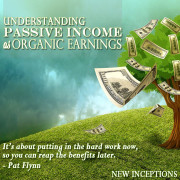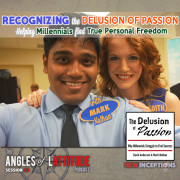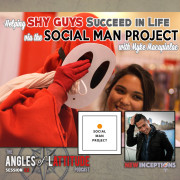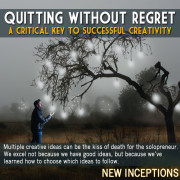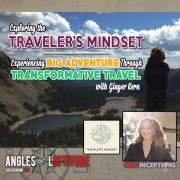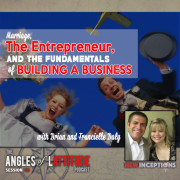Understanding Passive Income as Organic Earnings
In my last podcast session with Matt Bernstein, one of the nuggets of information he dropped (among MANY) was that he first heard of passive income from the same book I did, Robert Kiyosaki’s “Rich Dad, Poor Dad”. The main difference was that he read it when he was young and I read it when I was starting college.
I was already heading towards getting my first degree when I read the book in 2002. My workload as an engineering student was pretty massive, but I’ve been in the search of ways for it to work ever since then. Why wouldn’t I be? To me, it’s the answer of old adage ‘What? Do you think that money grows on trees?’.
Actually…
Passive income should really be called “organic earnings”. Not because they’re earnings picked from a tree, mind you, but because they are earnings that are based on how well we set ourselves up to sell something automatically. We simply have to let either word of mouth and/or online business nature take it’s course. It doesn’t matter if we personally do an additional hour of work, we’re not going to be paid any more for that one hour directly. Indirectly, however, we might get paid over and over again.
What I’ve found through 13 years of investigation and research, are a few things I really want to share with you guys today.
Passive Income Creates Options
Working on developing passive income opens up the potential for a whole new lifestyle that most would only dream of living. As they say in LTD, eventually you can have 6 Saturdays and a Sunday every week if you work on your business like a business and not a hobby.
If you want to travel somewhere – you could, with no reservations (no pun intended). Get up, buy a ticket, and go without packing. Get some clothes when you get there!
If you have some work to do, you can simply do it from the internet. All you would need is your laptop (or just an internet cafe), and your online business could still be up and running. This is exactly what Cam (from session 8) and Ginger (from session 20) do on their travels.
If travel to travel isn’t your thing, then you have other options. Perhaps you simply want to be at the gym or out on the golf range at any time you want. Or maybe, you just want the opportunity to go to any sports games you’d want. If you’re big into entertainment, you can potentially create a man cave for a king!
Or, if you’re like my wife, Maria, you could work somewhere you love that maybe doesn’t pay you a supporting wage (or you could even volunteer), and your passive income could pick up the slack.
It really depends on you and your ambitions!
If you can Share it Online, it can be a Source of Passive Income.
Any business that you do online can help you create passive income. At AMS, one of the things I struggled to do was figure out how to create passive income for the company. While we were mainly online, our events were TOTALLY not. All registrations were online, true, but our registrants had to actually come to our events. So, just like a brick and mortar store, our ability to provide value to people was based on our geographical location.
In 2016, however, we have started implementing Virtual Races. In the first race we had being virtual as an option, we had 93 registrants from all over the US. While many might wonder, “What’s the point of doing a race if you’re not at the actual location of the event?” in 2016, we should realize that many people run for the gear they get from the event. It’s their proof that they did the event. Virtual Races are considered passive income sources because all you have to do is make the event and you can theoretically sell as many entries as possible.
Likewise, one of our upcoming guests, David Picciuto, is what many of us would consider a Maker. When we think of a Maker, we typically think physical products that are limited and typically sold in a geographical region. Typically, you’d be right. However, this doesn’t necessarily have to be the case either. In fact, in our upcoming chat, we’ll explore how his site, makesomething.tv, where he shares with others how they can build things he’s built… and other topics related to doing what he’s done.
Another example of something that isn’t typically thought of being a passive income business, is being an artist. However, if you’re an artist and want to generate passive income, then one idea might be to do teach while they’re creating their work similar to how Bob Ross taught on his show for so many years. (And, in fact, whoever owns his brand now, has made a passive income site based on his teaching.)
Passive Income Doesn’t Come Cheap
However, let’s be clear that true passive income isn’t for free. In fact, earning a passive income simply isn’t a “get rich quick” idea. It takes some time, a bit of research and probably a little bit of luck too (although I like to say you can create your own luck), in order to get to a point where you’re comfortable saying you have a successful passive income creating business.
It’s about putting in the hard work now, so you can reap the benefits later. – Pat Flynn
Action Steps
Are you really serious about getting started on your path to developing passive income for yourself? If so, then you ought to think about what type of business you want and get on starting to make it. Not only that, but why?
Do you want it to…
- Be side income on the side of your day job?
- Be able to quit a job that you dislike?
- Work On a project that you’re passionate about?
- Be financially free?
This is part of what you should consider.
There are multiple resources around the web that I spoke of in this post. However, stay tuned for our very own resource that will combine the best thoughts of all these resources (and others) coming soon!
Comments are welcome below and check out Bob Ross’ site if you haven’t yet or not sure who he was. He was a great inspiration to my creativity as a kid!

